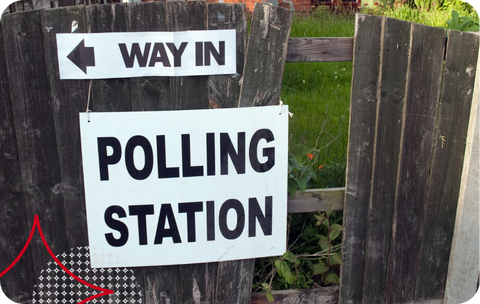The impact of the election on FX markets
Get exclusive market updates and the latest currency exchange news sent straight to your inbox

Potential election outcomes
9 minute read3 July 2024
Looking at the poll data, consuming the blow-by-blow analysis, and listening to an unhealthy number of politics podcasts, my expectation for the UK general election is that there is a very high probability that none of us will be surprised, and Labour will win a healthy majority.
However, as we know from Brexit and Trump, we can never be sure, so I believe there are three credible scenarios we could find ourselves in the early hours of 5th July:
- Labour wins a large majority (over 100-seats): This scenario has a 90% probability. Labour securing a large majority would likely result in little to no immediate foreign exchange reaction. We might see very mild short-term strength or weakness in the pound (GBP), but overall, the market reaction would be subdued.
- Labour wins a smaller-than-expected majority (under 100-seats): This scenario has a 7% probability. A smaller-than-expected majority for Labour would likely lead to GBP weakness. The market could perceive a smaller majority as a sign of potential instability or difficulty in passing legislation, which could impact business confidence and economic outlook.
- Hung parliament: This scenario has a 3% probability. A hung parliament would likely result in a significant crash of the GBP. The uncertainty and potential for prolonged political negotiations would create market instability, leading to a sharp decline in the value of the pound.
To summarise, there is a very high chance (90%) that nothing significant will change for the GBP and a very slim chance (10%) that the GBP will move lower, with a 3% chance of a substantial crash. I do not see a scenario where the GBP gains significantly due to this event in particular, but that is not to say it won’t gain strength later due to policy announcements from the new government or other unrelated events.
As always, this is my personal view and does not constitute financial advice. You will and should find conflicting views across various platforms and outlets, which will help you make the most informed decision for your unique situation.
Probability data sourced from oddschecker.com
Historical impact of general elections on the foreign exchange market
The impact of general elections on the foreign exchange market has varied significantly depending on the political context, economic conditions, and market expectations at the time. Here are some notable examples from the UK illustrating how different election outcomes have influenced the value of the pound (GBP).
1992 General Election - Conservative Party victory under John Major.
The unexpected Conservative win led to a significant rally in the pound. The markets had anticipated a hung parliament or a Labour victory, which were seen as less favourable for economic stability. The GBP/USD exchange rate increased from around 1.75 to above 1.80 in the days following the election.
1997 General Election - Labour Party landslide victory under Tony Blair.
The pound experienced initial volatility but eventually stabilised as markets became confident in Blair's centrist approach and his commitment to economic stability. The GBP/USD rate saw a minor dip immediately after the election but recovered quickly.
2010 General Election - Hung parliament leading to a Conservative-Liberal Democrat coalition.
The uncertainty surrounding the election outcome caused the pound to weaken. The GBP/USD exchange rate fell from around 1.53 to 1.45 in the weeks leading up to the election. After the coalition was formed, the pound recovered slightly as markets viewed the coalition as a stabilising factor.
2016 Brexit Referendum – Britain votes to leave the EU.
The referendum result led to a sharp decline in the pound's value, with the GBP/USD exchange rate plummeting from around 1.48 to 1.33 overnight. The uncertainty and expected economic repercussions of Brexit caused sustained weakness in the pound in the following months.
2017 General Election - The Conservative Party lost its majority, resulting in a hung parliament.
The pound fell sharply after the election results, dropping from 1.29 to 1.27 against the dollar. The hung parliament created uncertainty about the future government's stability and Brexit negotiations, contributing to the pound's weakness.
2019 General Election - Conservative Party victory under Boris Johnson with a large majority.
The pound rallied after the decisive victory, as markets anticipated a more straightforward path to Brexit and political stability. The GBP/USD rate rose from around 1.32 to 1.35 in the days following the election.
Historical data shows that general elections can significantly impact the foreign exchange market, particularly if unexpected outcomes lead to political instability. Markets generally prefer clear and stable results, which tend to support the currency's value. Conversely, uncertainty or unexpected results can lead to volatility and a weaker currency.
As always, past performance does not indicate future results, and various factors, including economic policies, global market conditions, and geopolitical events, can influence the foreign exchange market's response to election outcomes.
Our dealing teams are available throughout the UK parliamentary election night to support you through any potential volatility in the markets. You can find our election opening hours on our LinkedIn page here.
This commentary does not constitute financial advice. All rates are sourced from Bloomberg and forecasts are taken from Forex Factory.
This commentary does not constitute financial advice and all quoted rates are sourced from Bloomberg.
Author
- Joe Calnan, Corporate Dealing Manager



